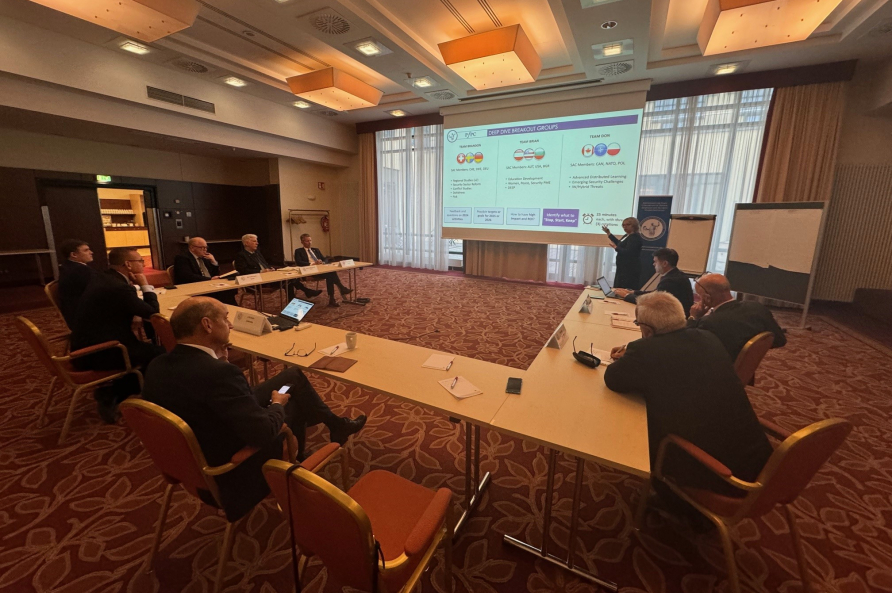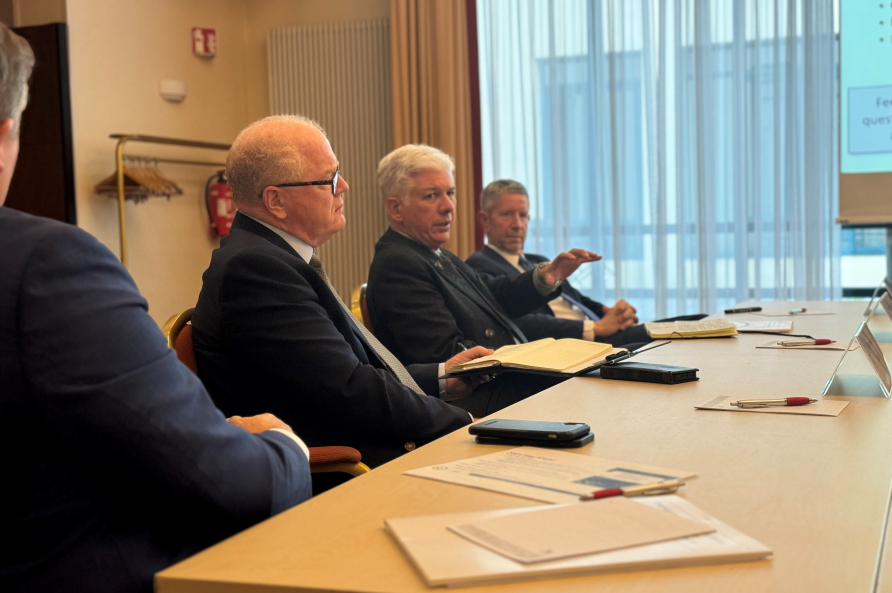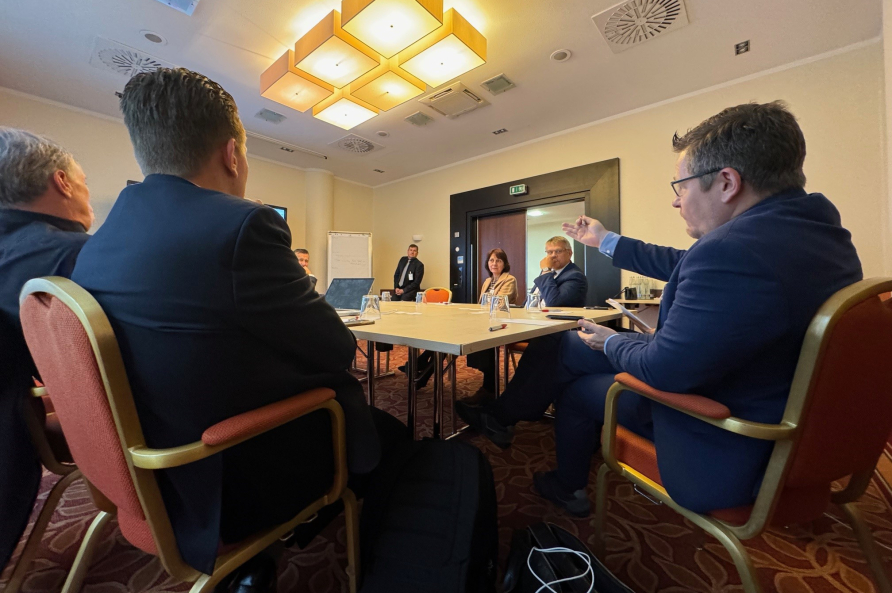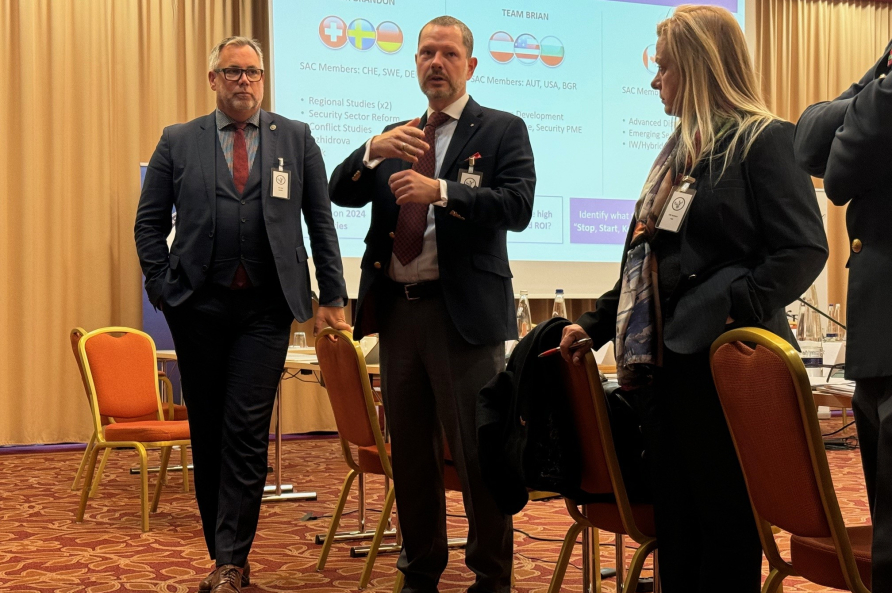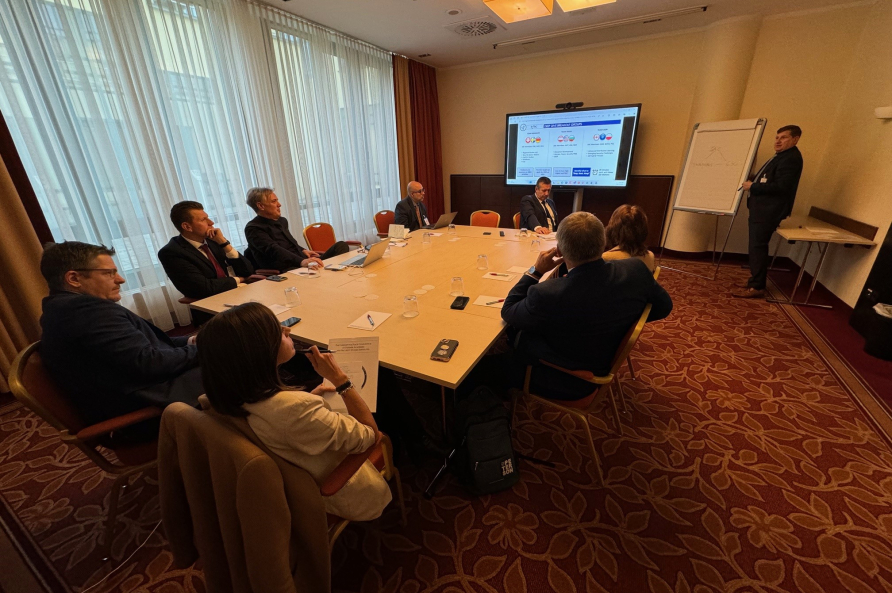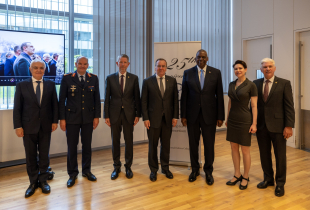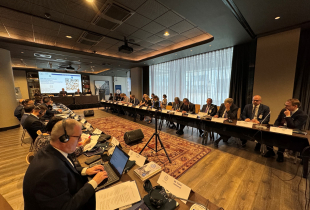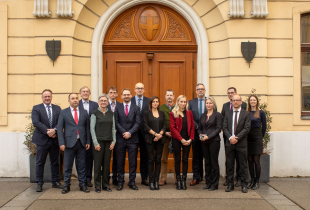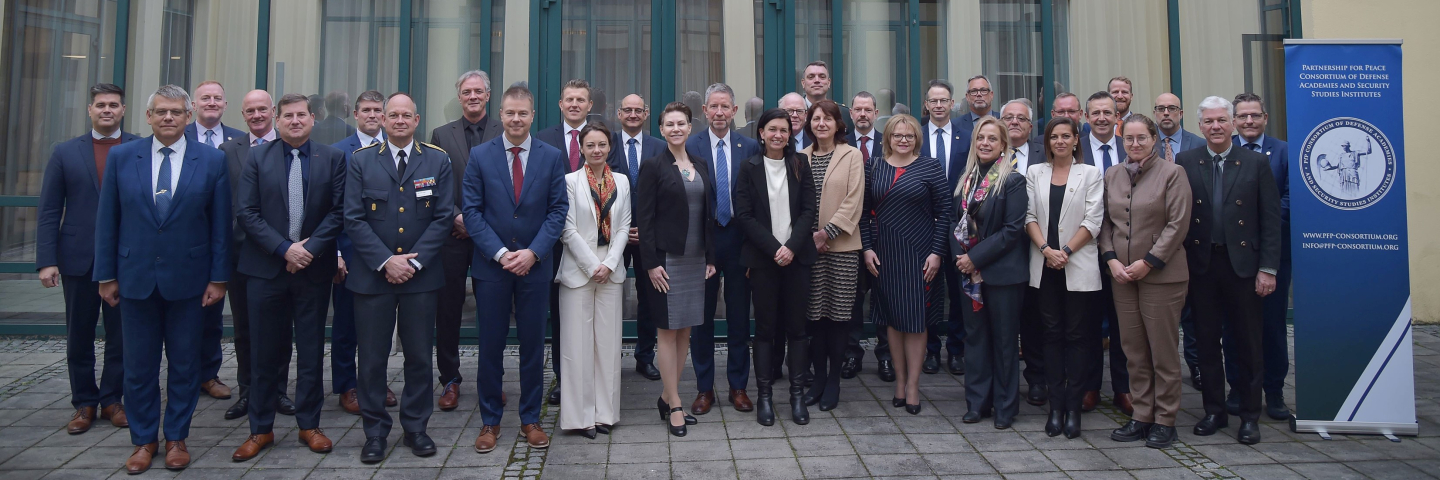
Partnership for Peace Consortium Combined Senior Advisory Council and Consortium Steering Committee Meeting
MUNICH, Germany (Nov. 14, 2024) – The Partnership for Peace Consortium (PfPC) recently concluded the annual governance meeting of its strategic and operational leadership assemblies.
Held November 12-14 in the historic town of Freising on the outskirts of Munich, this event brought together all of the PfPC leadership. This included the Senior Advisory Council, comprised of flag officers and senior executives from eight governance stakeholder nations and NATO, and approximately 25 Consortium Steering Committee members, who serve as operational executives and working group chairs.
“This year marked PfPC’s 25th anniversary, and we celebrated in several ways,” explained Dr. Sae Schatz, PfPC Executive Director, in her opening remarks. “Most notably, of course, the Defense Ministers (or equivalents) from our eight governance stakeholder nations signed a letter of commitment at NATO headquarters in Brussels this June. German Minister of Defense Boris Pistorius, U.S. Secretary of Defense Lloyd Austin, and NATO Secretary General Jens Stoltenberg each provided remarks praising the Consortium and praising its enduring importance.”
Dr. Schatz also described the prior year’s activities, which included over 20 working group seminars, 10 reference curricula writing events, and dozens of strategic outreach engagements, such as the NATO Conference of Commandants and NATO Partnership 360 Forum. PfPC, in conjunction with NATO International Staff, also contributed to the execution of hundreds of in-person and virtual Defense Education Enhancement Program (DEEP) activities.
Brig. Gen. (Ret.) Rolf Wagner, Senior Advisory Council Chair and Deputy Director for the Marshall Center, expressed his support for the PfPC’s productive work in 2024 and its 25 years of success. He also emphasized the value that the PfPC generates. As an organization, it is largely comprised of voluntary national contributions. That means the administrative efforts, financial support, and expert contributors’ time are provided by the PfPC’s contributing organizations rather than from a central source.
“This is what makes PfPC special,” Brig. Gen. Wagner said, “the amount of investment we each make, in terms of time and funding, compared to the outsized value we receive as a result. It’s a great return on investment.”
PfPC Mission and Operations
The PfPC is an international security cooperation organization of over 800 defense academies and security studies institutes across 60 countries. Their mission is to strengthen partner defense education and security sectors while fostering a trusted global network of defense educators, research professionals, and security sector practitioners. The PfPC Secretariat, located at the George C. Marshall European Center for Security Studies, manages the PfPC’s activities, coordinates with its governance stakeholder nations and NATO, and works with the Consortium Steering Committee to build and execute its various initiatives.
Much of the PfPC’s work is executed through its working groups, with each focused on regional or functional topics. In 2024, the PfPC oversaw nine permanent working groups and two, time-limited ad-hoc groups. The PfPC’s 2024 working groups were as follows included: Advanced Distributed Learning; Conflict Studies; Education Development; Emerging Security Challenges; Irregular Warfare and Hybrid Threats; Security Sector Reform; Regional Stability in the South Caucasus; Regional Stability in South East Europe; Connections Editorial Board; Women, Peace, and Security in Professional Military Education (ad-hoc); and Strategic Leadership Program for Ukraine (ad-hoc).
Each working group meets periodically and completes various projects, with a diversity of efforts spread across the groups. For example, the Conflict Studies working group examines current security challenges through the lens of military history, publishing scholarly papers describing their analyses. The Education Development working group develops practical tools and guidance for defense academies and produces professional development materials such as instructional resources for use in conjunction with faculty seminars. These working groups also produce reference curricula on various topics, information papers, policy recommendations, scholarly manuscripts, and a variety of hands-on projects, such as the seven-week executive-level leadership program currently being executed in Ukraine.
In addition to the working groups, the PfPC co-manages DEEP in conjunction with NATO International Staff. DEEP provides tailored practical support to Professional Military Education institutions in partner nations. Highly experienced subject-matter experts provide faculty development workshops and curriculum development support, as well as peer-to-peer mentoring to the faculty and staff of partner institutions. They also use materials created by relevant working groups, such as faculty development materials and reference curricula.
Maj. Gen. Denis O’Reilly, Commander of the Canadian Defense Academy who has served two years as the Canadian Senior Advisory Council representative, offered his perspective on the direction of the PfPC. “I've seen a lot of progress. It's incredibly impressive—the amount of working groups, the interactions, and integration points with nations and stakeholders who request our help,” he said, alluding to the PfPC’s work to build reference curriculum of consolidated best practices and lessons learned codified into a professional body of work. He went on to highlight the value in the Consortium’s work. “Every nation is here because of national interest. We're here because it matters and serves the national interest of all involved,” said O’Reilly. “Multilateral collaboration is a more effective way to solve global problems. Sharing ideas and collaborating together makes sense.”
PfPC Future Plans
After reviewing their 2024 accomplishments, each working group, as well as representatives from DEEP, discussed their operational goals and specific project plans for 2025 and 2026. At the same time, the senior leaders who comprise the Senior Advisory Council discussed current strategic objectives. They also made key decisions for the PfPC, including voting—with unanimous approval—on a proposal from the Romanian Ministry of National Defense to join the PfPC leadership assembly.
Romania’s accession makes it the tenth PfPC governance stakeholder, alongside Austria, Bulgaria, Canada, Germany, Poland, Sweden, Switzerland, the United States, and NATO. In January 2025, Romanian personnel will publicly take their place among the PfPC leadership at the next Consortium Conference, which will also serve as the closing ceremonial event for PfPC's 25th Anniversary.
Dr. Carmen Rijnoveanu, Director of the Institute for Political Studies of Defense and Military History within the Romanian Ministry of National Defense of Romania and a longtime contributor to the PfPC via the Conflict Studies working group, commented on this decision. She noted that the new role offers Romania an important opportunity to deepen its engagement and to contribute more meaningfully to the Consortium’s initiatives. “We are deeply honored and grateful for the decision to welcome Romania as a Senior Advisory Council member,” she said, stating the role underscores Romania’s longstanding commitment to the PfPC since the organization’s inception. “We are dedicated to upholding the values and responsibilities associated with this position and look forward to working closely with all PfPC members in support of our common mission.”
Additional decisions included a new focus on Human Security, plans for next year’s Consortium Conference (tentatively scheduled for December 2025), and detailed administrative planning for working group activities, which involve plans for dozens of events, over 500 DEEP engagements, a new reference curriculum on “Implications for Leadership of Emerging and Disruptive Technology,” and many different projects and knowledge products.
To learn more about the PfPC Secretariat at the Marshall Center and its efforts in support of the PFPC, visit www.marshallcenter.org/en/academics/partnership-peace-consortium-secretariat or contact the Secretariat directly at PfPConsortium [at] marshallcenter.org (PfPConsortium[at]marshallcenter[dot]org).
